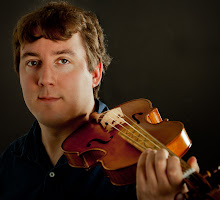Time has flown by since I returned from a great few weeks in New Zealand, where I spent Christmas and New Year with family and then watched my sister get married in a beautiful ceremony in my home town, Dunedin. In typical Dunedin fashion, the weather did not rise to the occasion, but the rain held off even though it was cool and overcast and you couldn't have asked for anything more.
The day after the wedding I was yet again on the first of many planes heading halfway around the world. No trouble with flights or airports...until Los Angeles, of course, which has been the bane of my traveling life for the last few years. Six years ago, when I finished a two year degree at the University of Oregon, my status as a student was mistakenly recorded as "terminated" instead of "completed". Because of this error, made entirely by the university, I have since been flagged on the US immigration system as a 'student status violator'; hilarious when telling people about it (particularly musicians, who like to adapt it to 'violinator'), but not pleasant at all when having to actually go through LA customs. Each time I go through, they tell me I'm required to go to secondary inspection, where they question me about the issue and all is fine. My passport is stamped and off I go. An irritating waste of time, but nothing to get too fussed about. Until this time, that is, when the delay caused by the secondary inspection caused me to miss my next flight out of LA to Indianapolis, and I was made to pay to get on a new flight. And this was after I'd been told a few months earlier by the University of Oregon that it had all been sorted and I was no longer flagged on the system. Lies. So I emailed the university again after finally making it back to Bloomington, and they responded saying "This red flag was supposed to have been removed when your status was changed from 'terminated' to 'completed', however sometimes the system isn't 100% full-proof (sic)." Brilliant. So now I have to wait again, and I'll probably be told again that I'm finally off the system, and it'll probably all be lies again. After all this time I don't think I'll ever get off the system. James Andrewes - student status violator; this will be what defines me to US security for ever.
After that outrageous experience though, life has returned to normal in Bloomington and I am busier than ever. The cantata class that I'm taking is full-on, with two-week cycles of cantata analysis, performances and essays. Then I'm taking violin lessons, baroque orchestra and a class on classical performance practice. Add to that an upcoming performance outside university of Bach's triple violin concerto BWV 1064, a performance of Monteverdi's Vespers with the University Early Music ensemble Concentus, and a bunch of other performances throughout the semester, and I'm as busy as a hive of bees. Oh yeah, and I forgot to mention all the scanning work that I have to do for one of the music professors here. Tedious, but kind of fun getting to see all the different scores and articles that I hadn't previously known about.
All this while battling a rather chilly winter; temperatures have recently been as low as -11 Celcius, and I'm pretty much wrapped up in coat, hat, gloves and scarf most days. Brrr and grrr in equal measure.
